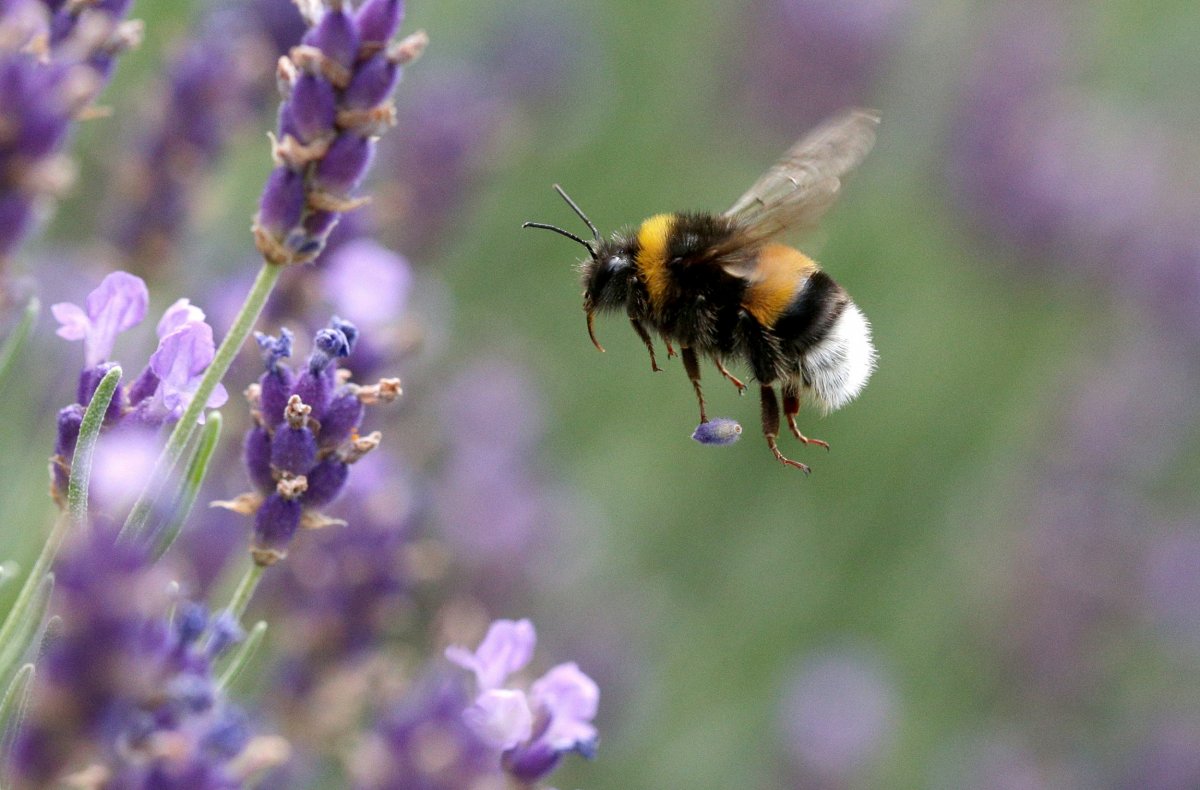Pesticide-contaminated food entering bee colonies may pose a greater risk than previously thought.
Researchers from Imperial College London and Queen Mary University of London found that bumblebees begin to enjoy the taste of food laced with pesticides the more they are exposed to it. Published in Proceedings of the Royal Society B on Wednesday, the study showed that over time, bees in the colony increasingly eat the food with pesticides in it, potentially showing addictive behavior from the bees.
The team specifically looked at the pesticide class neonicotinoids, which many blame for the decline in the bee population. A 2012 study published in Science found that when bumblebees are exposed to neonicotinoids, they experience a significantly reduced growth rate and an 85 percent reduction in production of new queens when compared with colonies not exposed to the pesticide. The pesticide is almost completely banned in the European Union, but some disagree that the pesticide is the cause of dwindling bee populations.
"Whilst neonicotinoids are controversial, if the effects of replacements on nontarget insects are not understood, then I believe it is sensible that we take advantage of current knowledge and further studies to provide guidance for using neonicotinoids more responsibly, rather than necessarily an outright ban," Richard Gill, lead researcher on the study and a lecturer at Imperial College London, said in a statement.
To understand more about how the pesticides are affecting bees, the team tracked 10 bumblebee colonies over 10 days. Every colony had access to an area that contained feeders with neonicotinoids and feeders without it. The bees were able to pick which feeder to use. Initially, the bees picked the non-neonicotinoid food. However, over time they drifted over to the food with the pesticide more and more and began going to the noncontaminated food less.

"Interestingly, neonicotinoids target nerve receptors in insects that are similar to receptors targeted by nicotine in mammals," Gill explained. "Our findings that bumblebees acquire a taste for neonicotinoids ticks certain symptoms of addictive behavior, which is intriguing given the addictive properties of nicotine on humans, although more research is needed to determine this in bees."
Previous studies have set out to determine the effect of bees exclusively feeding on pesticide-laced food, but this team wanted to replicate experiences in the wild, where bees have the choice between food with pesticides and food without pesticides.
Uncommon Knowledge
Newsweek is committed to challenging conventional wisdom and finding connections in the search for common ground.
Newsweek is committed to challenging conventional wisdom and finding connections in the search for common ground.
About the writer
To read how Newsweek uses AI as a newsroom tool, Click here.








